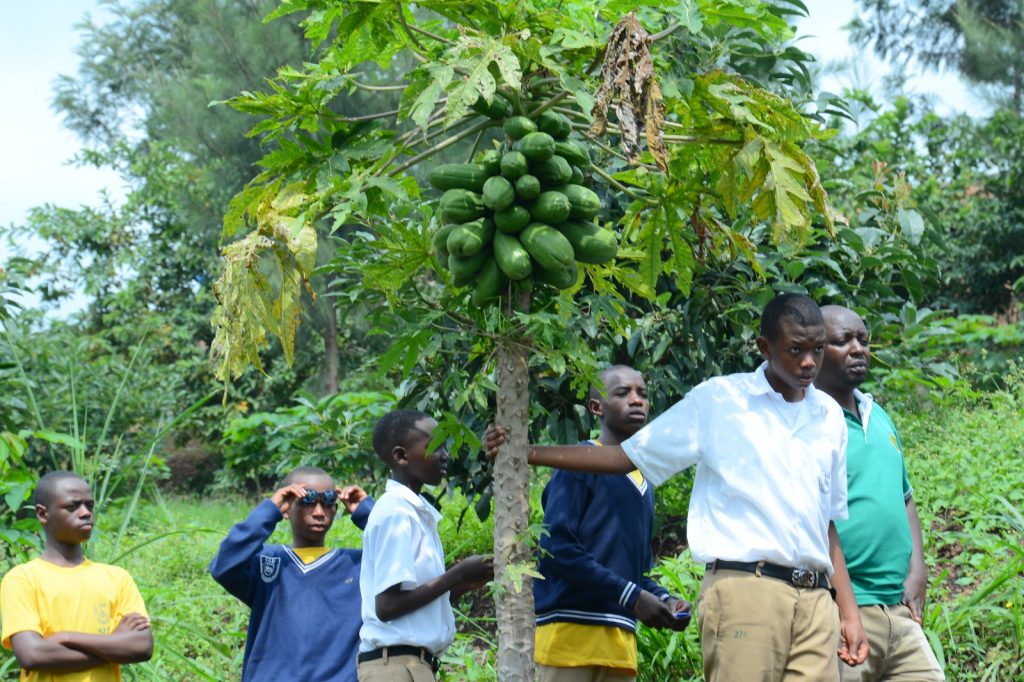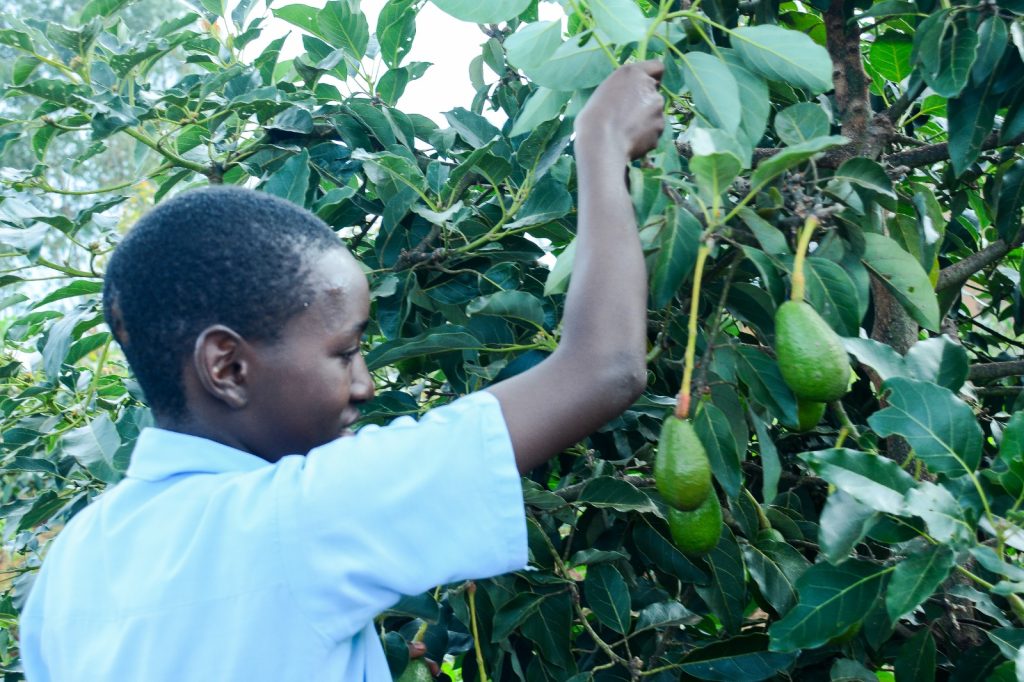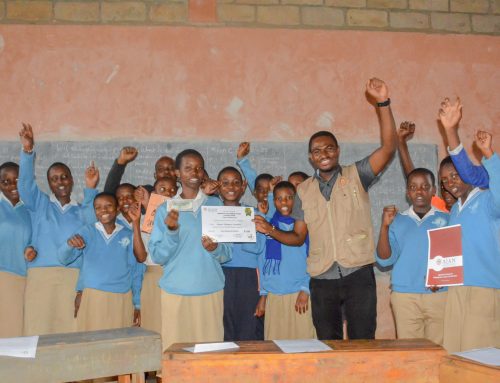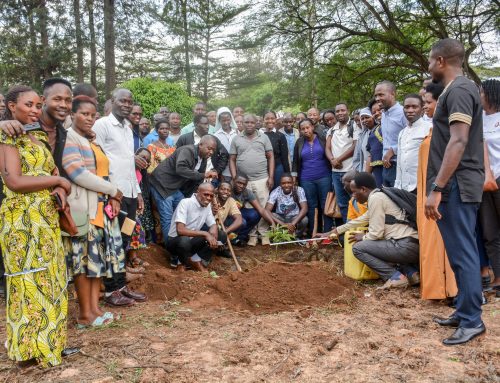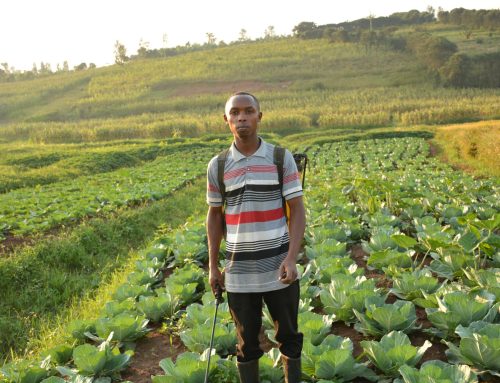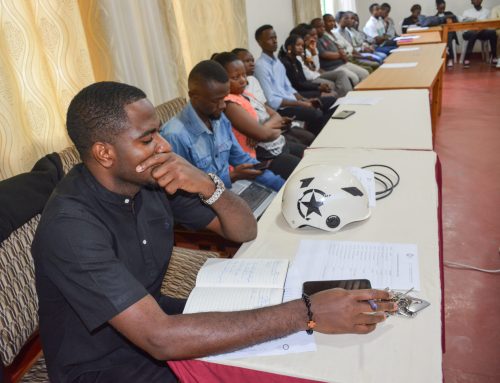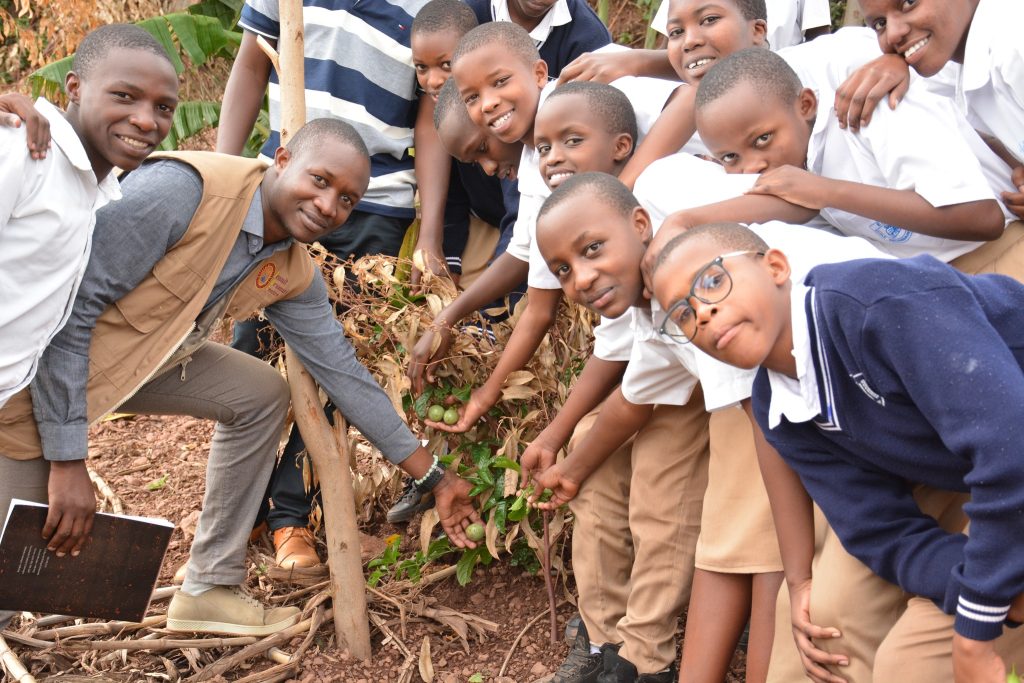
Passion fruit at Ecole Secondaire Bumbogo
In Rwanda, food insecurity and malnutrition remain pressing challenges. A Comprehensive Food Security & Vulnerability Analysis (2022) revealed that only 19.5 percent of children aged 6 to 23 months receive a minimum acceptable diet, while 32.8 percent achieve minimum meal frequency and 42.3 percent meet the minimum dietary diversity of four food groups. Such figures underline the urgent need for innovative approaches to both food and nutrition security.
Seeking to address this challenge, Jesuit Urumuri Centre (JUC) — an initiative of the Jesuit Fathers in Rwanda-Burundi Province — launched the project “Promotion of Environmental Conservation through Improved Land Utilization to Support School Feeding Program for Vulnerable Children” in 2021. Rooted in the vision of Laudato Si’, Pope Francis’ encyclical that calls every human to take care for “our common home,” the project represents a dual commitment: tackling malnutrition while fostering environmental conservation.
The initiative works on two interconnected fronts. It promotes environmental conservation by helping schools make better use of their land through tree planting and ecological education. It also supports school feeding programs, ensuring that vulnerable children have access to nutritious school lunches, which in turn improves their capacity to learn and thrive. The approach is simple yet profound: turning school land into productive spaces that both feed and educate.
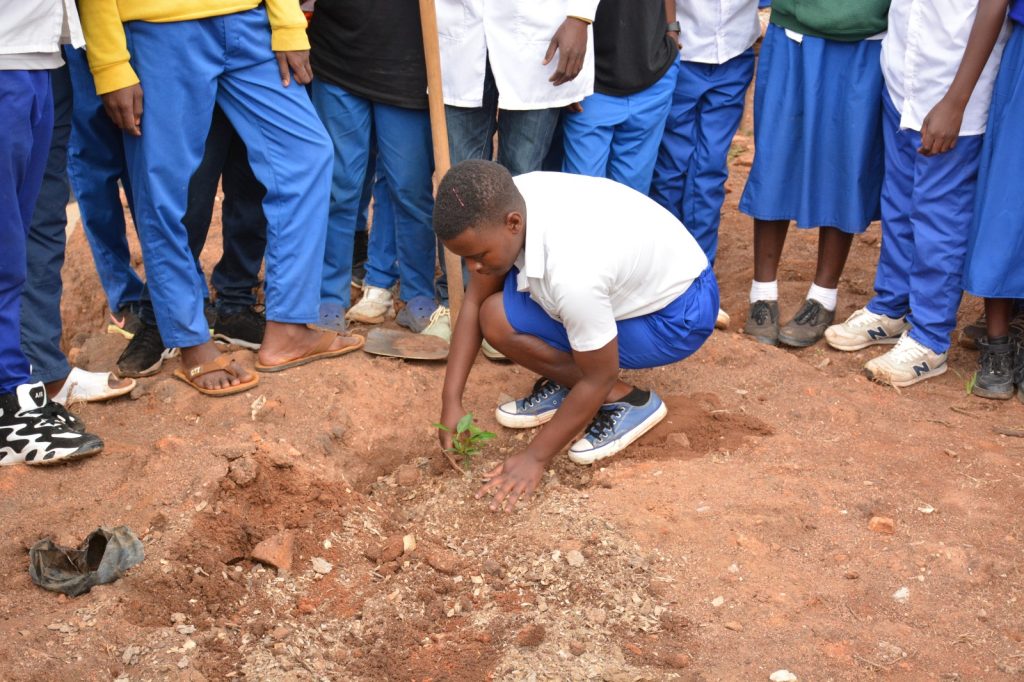
The environmental club members planting trees at Groupe Scolaire Gisasa
In collaboration with students from 12 partner schools in Kigali and its outskirts, JUC has transformed school lands into vibrant fruit gardens. Each school planted over 80 fruit trees in 2021, contributing to a total of 2,866 fruit trees planted. Today, some of these trees have already started to produce fruits, providing much-needed dietary diversity for children while combating environmental degradation.
The Environmental club members during outdoor club activities at Ecole Secondaire Bumbogo
“I was able to gain knowledge that taught me that without the environment, there is no life. I learned the consequences that evolve when the environment is not protected, and what we can do to prevent environmental destruction, and even when damage has occurred, ways to fight those consequences,” shared Pascal Kwizera, an environmental club member at GS Batima.
Beyond producing fruits, the gardens have become outdoor classrooms, where lessons on environmental stewardship are woven into daily life of students. Through ecological farming training and the establishment of environmental clubs in schools, students gain practical knowledge that extends far beyond the classrooms. Each school has two environmental trained facilitators dedicated to guiding club activities, supported by environment manuals developed by JUC.
“The group in the environment club has now understood how to care for the environment and how to protect it, very differently from how it was before the club started or before JUC gave us those trees. Now a child is committed to ensuring that the trees they are monitoring grow well and stay safe,” said Kampire Joselyne, head teacher at GS Janjagiro.
The integration of nutritious meals with ecological education has fostered a sense of shared responsibility, where children learn that caring for the environment is directly linked to caring for creation. As one student reflected:
An environment club member at GS Masaka1 visiting school garden
“I learned that trees also must be respected. This tree is a creature too. When you harm it, you are destroying a creation of God,” observed Valens Ndindiriyimana, an environment club member at GS Janjagiro.
As Rwanda continues to confront the challenges of malnutrition and environmental degradation, the model JUC advanced demonstrates that meaningful change can begin from local communities. A tree planted in a school garden can nourish a child, educate a student, and inspire a generation to care for the environment.
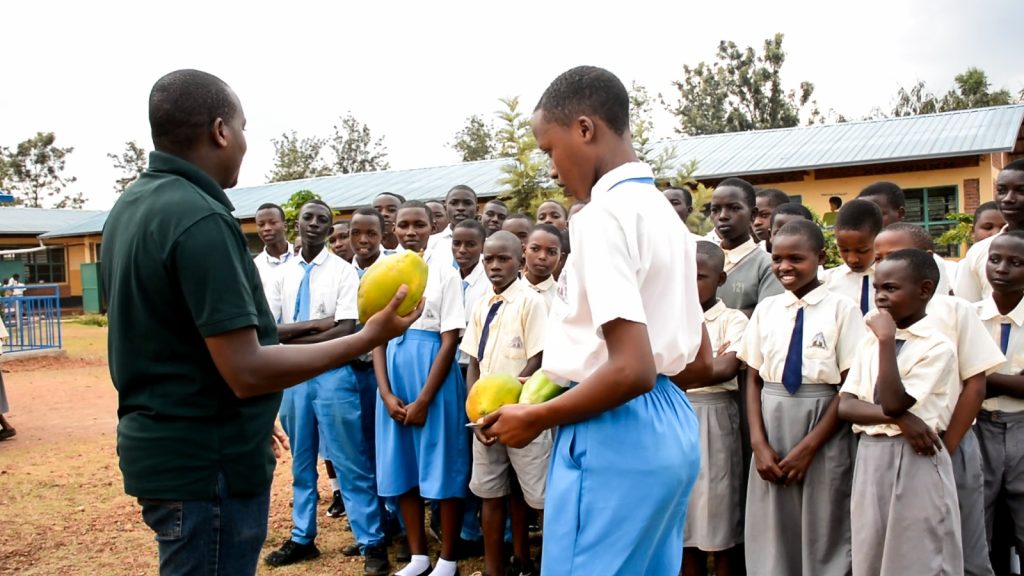
JUC staff addressing Groupe Scolaire Batima Nyinawajambo while students present some of the papayas harvested
Through its holistic vision, Jesuit Urumuri Centre is proving that the fight against hunger and environmental conservation are not separate struggles, but rather two parts of the same journey toward sustainable development.
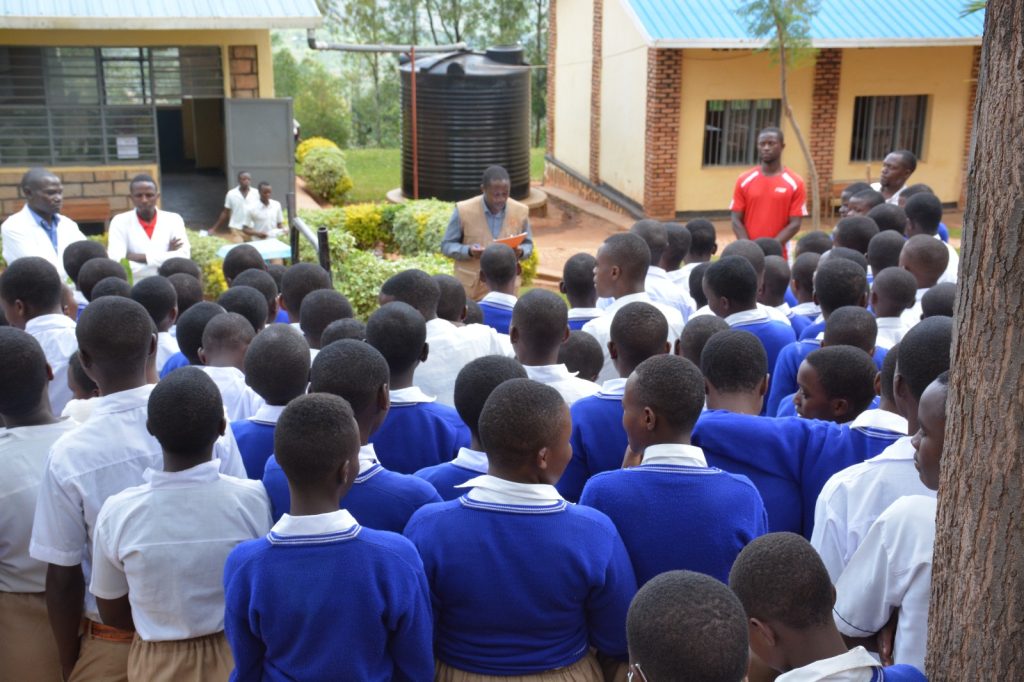
JUC staff addressing environmental club members during fruit trees delivery at Groupe Scolaire Gikomero
“What kind of world do we want to leave to those who come after us, to children who are now growing up?” Laudato Si’ #160
Yunusu Dukorerimana
Communications Intern

